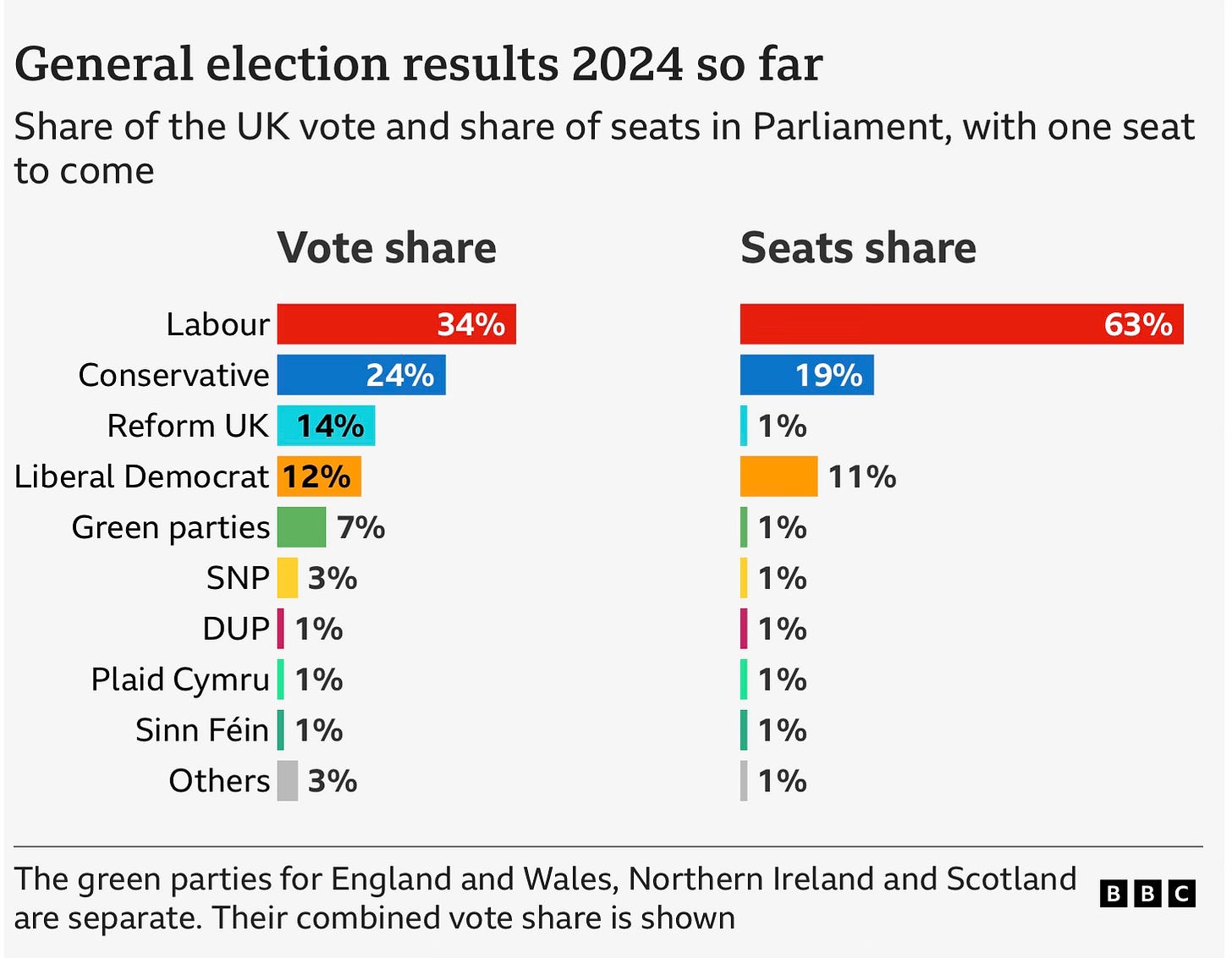Five charts to start your day
The UK general election had the largest-ever disparity between vote share
You can’t trust AI these days. I asked for an image of the UK general election, and Donald Trump (I asked for Nigel Farage). But I laughed so much that I had to include it in today’s newsletter. Don’t ask me what prompt I used.
So back to the subject matter. The 2024 UK general election resulted in the largest-ever disparity between vote share and Parliamentary seat allocation. This unprecedented gap has reignited debates about electoral reform, with parties like Reform UK and the Green Party expressing frustration over their significant vote shares translating into minimal representation in Parliament.
Labour, despite winning only 34 percent of the total votes, secured about 64 percent of the 650 seats, creating a 30 percentage point gap between vote share and seat share – the most disproportionate result on record since 1918.
This outcome surpasses the previous record set in 2001 when Tony Blair's Labour Party had a 22 percentage point gap. The current first-past-the-post system tends to produce such disproportionate results, leading to calls for a more representative voting method.
However, it is worth noting that a 2011 referendum to replace this system with an Alternative Vote was rejected by the public. Furthermore, there are plenty of arguments in favour of a first-past-the-post system.
It gives the winning party a strong majority to govern without the need for messy and complex alliances. It also prevents fringe far-right groups from gaining a voice in Parliament; i.e., there is an idiot in every village, but do village idiots need parliamentary representation? The downside is it creates less room for compromise, bipartisan politics, and alliances that can target longer-term governance objectives.
Source: The BBC
Coming up:
UK government debt at levels not seen since 1961
Britain’s electoral map 2019 vs 2024
Growth in British net immigration since Brexit
The huge economic divide between Canada and the US
If you like the sound of that line up, this is usually a paid newsletter. You basically get all my best ideas daily. Hit the subscribe button if you are interested and this will be sent to your inbox daily.




